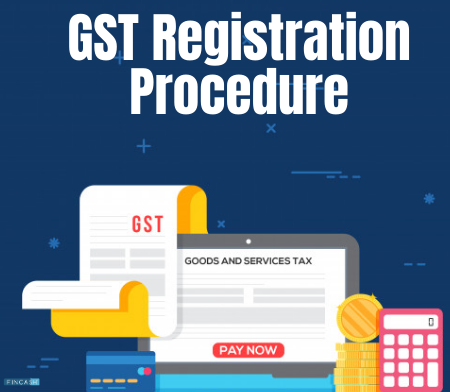Top Ranked Best GST Registration Services in Singapore for 2024
Top Ranked Best GST Registration Services in Singapore for 2024
Blog Article
From Start to End Up: The Ultimate Roadmap to GST Enrollment for Businesses Seeking Financial Security
Browsing the intricacies of Product and Services Tax Obligation (GST) enrollment is a vital step for businesses pursuing monetary stability. From understanding the basic concepts of GST to following post-registration guidelines, the procedure can appear daunting in the beginning glimpse. Nonetheless, breaking down the roadmap into convenient actions can enhance the enrollment journey for organizations seeking to enhance their monetary standing. Allow's discover the vital components that compose this supreme roadmap and discover how each stage adds to laying a solid foundation for monetary success.
Recognizing GST Basics
Looking into the fundamental principles of Product and Solutions Tax Obligation (GST) is important for obtaining an extensive understanding of its ramifications on businesses and the economic climate. GST is a value-added tax imposed on the majority of products and services for residential intake. It has actually replaced several indirect tax obligations that existed in the pre-GST era, simplifying the tax framework and improving simplicity of doing company in India. Under the GST system, both services and items are strained at a certain rate, which is determined based upon their classification. Businesses are called for to register for GST if their yearly turn over exceeds the threshold limit established by the government. Input Tax Credit History (ITC) is a considerable feature of GST, permitting companies to claim debt for taxes paid on inputs, lowering the overall tax obligation burden. Recognizing the fundamentals of GST is essential for services to abide with tax obligation laws, manage their financial resources effectively, and add to the country's financial growth by taking part in a transparent tax obligation system.
Qualification Standards for Registration
As of the current laws, the threshold limitation for GST registration is an annual accumulation turnover of 40 lakhs for organizations operating within a state, except for unique category states where the restriction is 20 lakhs. Additionally, specific businesses are needed to sign up for GST irrespective of their turnover, such as interstate suppliers, laid-back taxable persons, and organizations liable to pay tax under the reverse cost mechanism. It is critical for companies to extensively assess their turnover and purchase types to identify their GST enrollment responsibilities accurately.
Papers Needed for Registration
Having fulfilled the eligibility standards for GST registration, services must now guarantee they have the requisite records in place to continue with the enrollment process successfully. The papers needed for GST registration generally consist of proof of service constitution, such as collaboration deed, enrollment certification, or incorporation certificate for various sorts of organizations. Additionally, services need to provide documents establishing the principal area of service, such as a rental contract or electrical energy expense. Frying pan card of business, in addition to the identity and address proof of promoters/partners/directors, are necessary for confirmation functions. Financial institution account statements, along with canceled cheques or a copy of the financial institution passbook, are called for to confirm the economic details offered during registration. Companies must have electronic trademarks prepared for the authorized signature. Ensuring all these records are arranged and easily available will certainly accelerate the GST registration process, making it possible for organizations to adhere to tax obligation policies perfectly.
Step-by-Step Registration Process
Starting the GST registration process entails a series of organized actions to guarantee a certified and seamless enrollment for services. The initial step is to go to the GST site and submit the registration form with exact details of the organization entity. Following this, the candidate obtains a Temporary Reference Number (TRN) which is used to return to the application process if it's not finished in click resources one go.
Next, all called for papers as per the list supplied by the GST portal need to be posted. These records usually consist of evidence of company registration, address and identification evidence of promoters, financial statements, and business entity's PAN card.

Post-Registration Conformity Standards

Verdict
In verdict, businesses seeking financial security must comprehend the essentials of GST, fulfill eligibility criteria, gather needed documents, comply with the detailed enrollment process, and abide with post-registration guidelines - Best GST registration services in Singapore. By sticking to these steps, organizations can make certain conformity with tax regulations and keep monetary stability in the long run
Furthermore, specific services are required to register for GST irrespective of their turn over, such as interstate vendors, casual taxed individuals, and organizations accountable to pay tax obligation under the reverse cost mechanism.Having satisfied the qualification standards for GST enrollment, organizations need to now ensure they have the requisite documents in place to proceed with the registration process successfully. The papers needed for GST blog registration commonly include evidence of organization constitution, such as partnership action, enrollment certificate, or consolidation certification for various kinds of businesses. In addition, services require to supply files establishing the principal place of business, such as Homepage a rental agreement or power expense.Commencing the GST registration process includes a collection of structured steps to guarantee a seamless and compliant enrollment for businesses.
Report this page